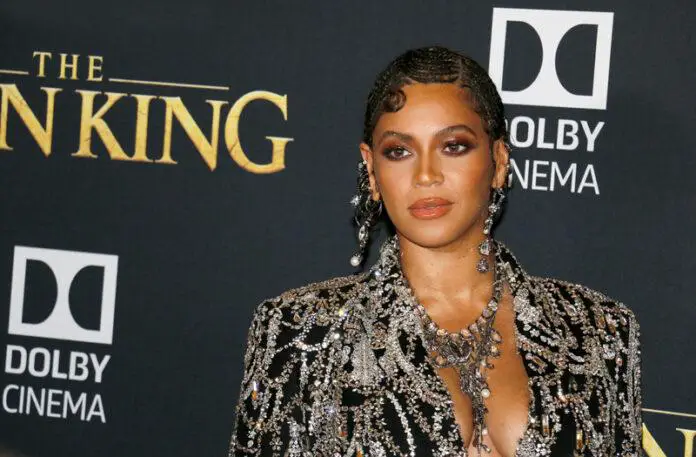Beyoncé’s latest single, “Texas Hold ‘Em,” has emerged as a significant force on the music charts and within the music industry.
Revealed unexpectedly during the Super Bowl LVIII halftime performance on February 11, 2024, the song heralds the imminent arrival of her eighth studio album, Act II.
Crafted as an up-tempo blend of country-pop with elements of western and soul, “Texas Hold ‘Em” showcases a rich composition featuring banjo, acoustic guitar, and drums. This collaborative effort brings together the talents of Nathan Ferraro, Elizabeth Boland, Megan Bülow, and Raphael Saadiq, with a notable contribution from Rhiannon Giddens on banjo and viola.
Critics have unanimously praised Beyoncé’s vocal delivery and the song’s genuine country sound, highlighting its role in reclaiming the genre’s Black roots and amplifying the visibility of Black country artists.
Upon its release, “Texas Hold ‘Em” debuted at number two on the Billboard Hot 100 and clinched the number one position on the Hot Country Songs chart.
This accomplishment established Beyoncé as the first Black woman to lead the country chart. Despite initial reluctance from some country radio stations to include the song in their playlists, its widespread acceptance has since expanded the genre’s audience, underlining the song’s commercial success and global appeal.
The song’s broader impact was felt when an Oklahoma country radio station, KYKC, initially refused to play “Texas Hold ‘Em.” Roger Harris, the station’s general manager, attributed the refusal to a misunderstanding, explaining that the station had been unaware of Beyoncé’s new country offerings due to a delay in receiving the tracks from Sony Music.
Following a surge of viral backlash and accusations of racism, KYKC, alongside its affiliate stations KCFC-FM and KADA-FM, added “Texas Hold ‘Em” and “16 Carriages” to their rotations, thus recognizing Beyoncé’s foray into country music.
Beyond achieving commercial triumph, “Texas Hold ‘Em” has played a crucial role in spotlighting the contributions of Black artists to country music. It has spurred a broader appreciation for the genre’s diverse origins and initiated conversations about representation and inclusion within country music.

